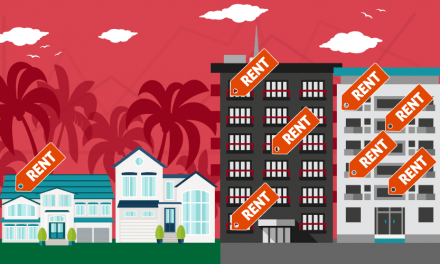Consider an individual who wishes to purchase a property with income-producing potential. Alone, they don’t qualify to purchase due to a lack of funds. But if they gather other investors, they can combine their funds into a group investment, called a real estate syndicate.
Syndication is the act of bringing together in co-ownership a group of investors to fund the purchase, operations, and eventual resale of an income-producing property. Syndicated co-ownership is most effectively accomplished when structured as a limited liability company (LLC).
Syndicating real estate allows individuals to correspondingly build net worth and receive additional flows of income from fees for management services and distributions of spendable income.
The individual who negotiates the acquisition of the property and organizes the group is known as the syndicator or manager. This individual may also perform property management services during the group’s ownership of the property and handles the resale of the property.
But does the syndicator need to be licensed by the Department of Real Estate (DRE)?
The answer is, sometimes, but not always.
Licensing to cover consumer exposure
Typically, and in the most basic terms, a real estate license is required when an individual acts as an agent for a client in a real estate transaction. Since syndication does not necessarily involve an individual acting as an agent, it may seem straightforward that a DRE license is not needed.
But this logic doesn’t always apply. For example, a trust deed dealer who buys, sells or exchanges eight or more trust deed notes in a calendar year is required to hold a DRE broker license (unless they retain a broker to negotiate the resale), even though they are acting as the principal. [Calif. Business and Professions Code §10131.1]
In the case of trust deed dealers, a license is required to protect consumers due to the sensitive implications of dealing in trust deed notes, even though they are not acting as agents.
We argue the same is true for syndicators, who — even when they are not acting as agents — may expose consumers to the side effects of risky investments.
A syndicator needs to be licensed by the DRE when they perform activities requiring a real estate license. Further, there are various other laws syndicators need to be aware of. The laws they need to follow depend on many factors, including:
- what type of entity the syndicate is;
- the number of investors;
- whether the investors are accredited;
- the syndicate’s purpose; and
- where the syndicators are located.
The DRE currently has no stance on whether real estate syndicators ought to require a real estate license. Rather, the DRE emphasizes the need for licensees and other individuals conducting syndicator activities to understand the securities exemption under the Department of Business Oversight (DBO).
In particular, syndicators need to be aware of when their activities cross the line from simple investment to security, which falls under additional legal scrutiny.
Related article:
Our proposal
first tuesday proposes to require California real estate syndicators to be licensed by the DRE.
A DRE license not only lends a syndicator credibility, but it helps protect consumers from potentially risky investment activity. For example, an inexperienced or unknowledgeable syndicator may inadvertently venture into securities territory, which requires additional rules to be followed. Currently, the DBO regulates the securities exemption allowed under California law. But it does not require licensing.
Just as real estate transactions open consumers to possible misrepresentation and fraud, so do real estate syndicates. Therefore, requiring syndicators to be educated on the many laws created to protect consumers and investors will only benefit consumers.















Real Estate Agents do not typically know any of the laws you quoted. There are more agents that don’t have a clue about real estate then there are syndicators.